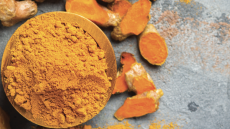Six traditional Chinese medicinal herbs allowed for use as food spices but health claims denied

In an announcement made on Jan 6, China’s National Health Commission (NHC) listed the six herbs as danggui (Angelica sinensis), Shannai (Kaempferia galanga L.), xi hong hua (Crocus sativus L.), cai guo (Amomum tsao-ko), turmeric, and biba (Piper longum L.).
When manufactured as a general food, the product label, indication, advertisement, and promotion content for the herb must adhere to the Food Safety Laws.
As such, the product should not make claims related to disease prevention or disease treatment.
In a statement, the food safety standards and assessment unit under NHC recommended manufacturers to follow the traditional preparation methods when manufacturing these herbs as a food spice.
The methods include slicing, boiling, and pressing.
On the other hand, these herbs will be subjected to health foods or traditional Chinese medicine (TCM) standards if they are incorporated into health foods or used as a TCM.
The Chinese authorities convened a public consultation two years ago to consider the recognition of these herbs as commonly used food.
The NHC noted that danggui was also used as a food spice elsewhere in the US, Europe, and Japan.
More to come?
The NHC has convened a pilot study on nine other herbs to assess their suitability to be recognised as a commonly used food.
The nine ingredients are dangshen (Codonopsis pilosula), Cistanche deserticola, Dendrobium officinale, American ginseng, Milkvetch of the astragalus family, lingzhi (ganoderma), Cornus officinalis, Gastrodia elata, and Eucommia ulmoides.
Assessment would be made in accordance to China’s Food Safety Law, China’s pharmacopoeia, and the local population’s dietary habits.
Food is medicine?
Although China does not allow general food containing medicinal herb to bear health claims, the opposite is set to take place in South Korea.
The South Korean authorities gave the green light for implementing some functional health claims on general foods in 2018, following the enactment of the Enforcement Decree of the Act on the Labelling and Advertisement of Food.
The concept of “food is medicine” is also a well-known concept within China and elsewhere in India.
There is also growing evidence that certain foods, such as mushroom and spice such as curcumin, are beneficial for health.
A study conducted in Singapore has found that a higher mushroom intake is linked to slower cognitive decline.
The researchers explained that ergothioneine, an antioxidant and anti-inflammatory compound, in mushroom, was a contributing factor.
